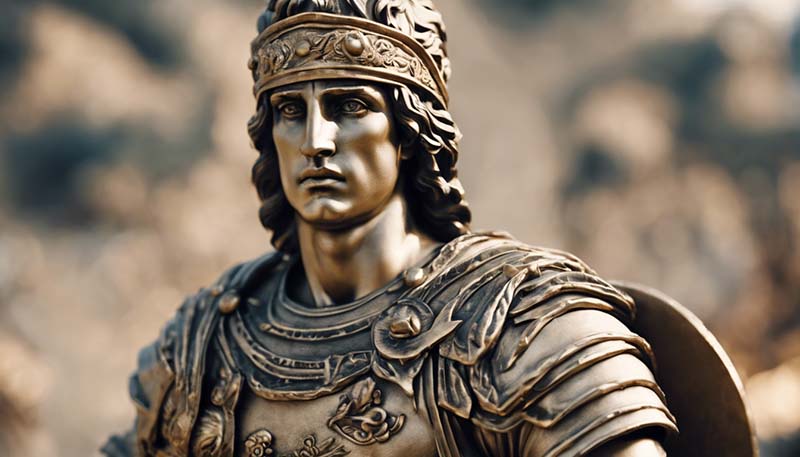Alexander the Great: Conqueror of the Known World
Introduction
Alexander the Great, also known as Alexander III of Macedon, was a historical figure of immense significance. Born in 356 BC in Pella, the ancient capital of the kingdom of Macedon, he was the son of King Philip II and his fourth wife, Olympias, the daughter of King Neoptolemus I of Epirus. Alexander is perhaps most renowned for his unprecedented military conquests across Asia and Africa, which led to one of the largest empires of the ancient world.
His reign as king began in 336 BC and lasted until his death in 323 BC. During this brief period, he managed to conquer the entirety of the Persian Empire, including Anatolia, Egypt, the Levant, Mesopotamia, Persia, and parts of India. His conquests were not just territorial expansions but also cultural exchanges that shaped the course of history in the regions he conquered.
Growing up in the Macedonian court, Alexander was privy to the political and military strategies of his father, King Philip II, who was a formidable military leader in his own right. Alexander was tutored by the philosopher Aristotle from the age of 13, which greatly influenced his intellectual development and world view.Early Life and Ascendancy
When his father was assassinated in 336 BC, Alexander ascended to the throne at the age of 20. He quickly solidified his position by quelling rebellions and consolidating power. His ambition and military prowess became evident as he set his sights on the vast Persian Empire, which was seen as the ultimate prize for any ambitious ruler of the time.
Advertisement
Alexander's first major conquest began with the Battle of Granicus in 334 BC, where he decisively defeated the Persian satraps. This victory opened the door to Anatolia and set the stage for a series of campaigns that would see him conquer the entirety of the Persian Empire.Conquests and the Establishment of an Empire
His military genius was on full display during the Siege of Tyre in 332 BC, where he built a causeway to bypass the city's formidable island defenses. The Battle of Issus in the same year was another pivotal moment, where Alexander's forces were heavily outnumbered by the Persian army led by Darius III but still emerged victorious.
The conquest of Egypt in 332 BC was a significant milestone, as it was seen as a land of immense cultural and strategic value. Alexander was declared the son of the god Amun by the Egyptian priests, which helped legitimize his rule in the eyes of the population.
His most ambitious campaign was the invasion of India, which began in 326 BC. Although he was initially successful, his troops, weary from years of campaigning, refused to go further into the Indian subcontinent. This marked the end of his conquests, and Alexander's forces began their long journey back to Babylon, where he had intended to establish his capital.
Alexander's conquests had profound cultural, social, and economic impacts on the regions he conquered. His empire spanned three continents and numerous cultures, leading to a period known as the Hellenistic Age, where Greek culture and language were disseminated throughout the conquered territories.Legacy and Impact on the Known World
The establishment of new cities, such as Alexandria in Egypt, served as cultural and economic hubs, contributing to the spread of Hellenistic culture. The libraries and universities in these cities became centers of learning and innovation, fostering a rich intellectual tradition.
Upon his death in 323 BC, Alexander's vast empire was divided among his generals, leading to the formation of several Hellenistic states, including the Seleucid Empire, the Ptolemaic Kingdom of Egypt, and the Antigonid dynasty in Macedon.
Alexander the Great's legacy as a military commander and cultural icon endures to this day. His life and conquests continue to be a subject of fascination and study, providing valuable insights into the dynamics of empire-building and the interplay between cultures.
